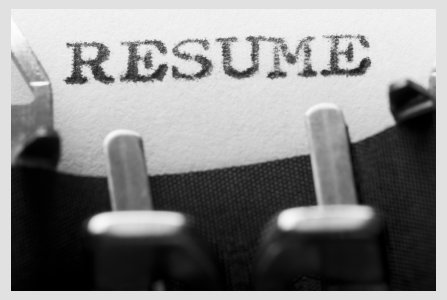I’ve looked at a lot of resumes for electronics positions, so I thought I’d share some of my opinions on what should or shouldn’t be on there. Nothing formatting specific, so much as how to get across your interest and passion in electronics. I used examples that are resumes meant for engineering internships, but a lot of the info can be generalized to anyone. Hope you enjoy the video!
Here are those two resumes, if you’re interested: The bad (1st) version and the better (2nd) version.

14 replies on “How To Write A Resume For Electronics”
Chris:
Your on-screen presentation is good and has some valuable points to make. But showing videos of printed resumes does not work very well. Not enough resolution. It would probably work better to make scans of the resumes and insert them into the video stream as static images with a voice-over.
Yeah, same problem as my video with KiCAD. I thought it would be ok, but I was wrong, apparently.
Interesting video. I'm a student graduating soon, and though I think my resume is decent, this gives a couple ideas for how to tweak it. Thanks 🙂
Chris,
I'm an EE student polishing my resume to apply for an internship and was wondering if you could give some insight. I have a section where I list some of my course experience.
Previously, I had these courses under a section titled "Academic Highlights" and I had this split into sections for "currently studying", "completed" and "to be completed before [start of internship]". I got a resume review through my university and the advisor suggested I instead make one big section for classes to be completed before [x] and put all classes (past, present, future) under that one section. In your opinion, is the advisors method better for the simplicity and extra space, or is my original method better for the added structure. A minor detail I know but I got my original method from "A Guide To Writing As An Engineer" (good book) and I'm hesitant to change it.
Also, I have a bit of a background in communication applications. I've taken a couple classes on presentations and have been required to give presentations for a few courses I've taken and projects that I've been a part of. I feel that presentation experience is invaluable in any career and I placed some of these courses under the project experience portion of my resume. At the moment, leaving these items in my resume is a no-brainer as I have the space. However, as I get more experience in my field, I'm wondering if it would be better to remove this section in favor of more directly related activities. Some if this material is a bit old (I took my first, and in my opinion best, communications class in high school), which may ultimately put it on the cutting board. This also brings up a general question, when space is the limiting factor, Is it better to have only tasks directly related to your field, or more of a balance that also shows skills that are good in the workplace in general.
Thanks for your insight and I hope that this post wasn't too long!
As you update your resume over the years, it will become obvious what to keep and highlight and what to toss. You’ll figure out what you like and what you dont like working on, so some of it will become irrelevant.
As for the class section, don’t worry about the order of how they’re listed, just make sure you highlight the ones you like more. If you took signals but hated it and don’t want a job related to it, leave it off. That’s my opinion anyway. If you’re trying to get through filters, then you might want to keep it all on there. The more important questions is what do you have on there outside of school?
Thanks Chris. Actually, funny you should ask what I put outside of school. I have the obvious things (engineering clubs, tutoring, etc. Stuff you'd expect from a student.) I also mentioned that I had soldering experience and had experience operating a mso. Not sure how much these skills would get noticed at larger engineering firms, but I did apply for a technicians job at a lab here at my university. I talked to the supervisor in person and told him I built kit electronics in my free time. He was very surprised to find out that I had any soldering experience. Come to think of it, soldering would require a lot of patience to teach someone. May be more helpful for some positions than others, but certainly never hurts.
Yeah, that’s a great example. You might think, “Everyone can solder, right?”. Nope, not by a long shot. Even fewer can solder well. Puts you ahead of the game to have that on a resume, even though it seems like a basic skill for electronics.
Loved the video…. I believe a good resume should focus on the experiences you had and really show case your passion for what you do.
I love this video because it is very interesting. I must say that a good resume for electronics has to have great backgrounds. CZ 858
This video looks really helpful glad to see this in here and to be honest I learned something new with this post.. thanks.. I appreciate this..
Fab Defence
chris, loved the video, i actually got my ME from University of florida, this helps
i am fresher.i have completed Electrical and electronics engineering (EEE).i need a resume format for companies(IT sector – bank or telecoms).please help me out.
This is an interesting story, the video shows how engineering works. It is also better to choose first the best education for the students to prepare their future careers.
Hi Chris, thanks for the wonderful thoughts and the video, resume variation was excellent .